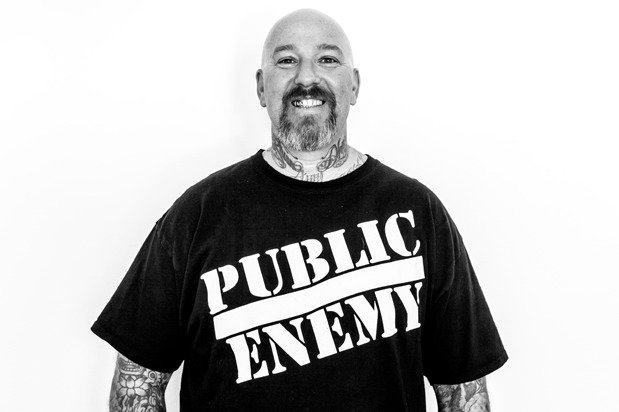From the outside, Noah Levine doesn’t necessarily fall under the characteristics of a traditional Buddhist teacher. Heavily tattooed and a passionate lover of punk rock, he himself never expected to take part in the Buddhist path. However, you’ll be surprised to find that Levine brings a long-awaited, fresh approach to addiction, rehabilitation and recovery with Buddhism and meditation as its central theme.
After years of Alcoholics Anonymous meetings, Levine found himself searching for an alternative to the central AA belief with its core of an “external higher power.” Familiar and raised with the teachings of Buddhism, he developed a systematic method of addiction treatment based on Buddhist principles that integrate scientific, non-theistic and psychological approach.
As he became entrenched in learning more about this peaceful religion, Levine was motivated to make the teachings of the Buddha available to all who are interested. His first two books (Dharma Punx and Against the Stream) focused on these philosophies and teachings.
Levine’s troubled childhood included a history of addiction dating back to marijuana and alcohol use as early as seven years of age. In 1988, Noah accepted mediation as what he refers to as a “gift of desperation.” He was willing to attempt anything to get out of his spiraling addiction. He had dropped out of high school, was arrested for felonies as a juvenile and faced an uncertain future. When he reached out to his father, meditation teacher Stephen Levine, he finally found his place in a life of mindfulness and self-empowerment.
The Beginning of Refuge Recovery
A Buddhist approach to recovery is the central focus at Refuge Recovery, a mindfulness-based addiction treatment program and community founded by Levine. Levine’s philosophy suggests that the solutions to our problems are actually within us, not outside. In other words, as stated on his website, “all individuals have the power and potential to free themselves from the suffering that is caused by addiction.”
Meditation is at the heart of the Buddhist way of life. As described in Buddhism, meditation is used as a conscious effort to change how the mind works. This perspective is central to the treatment process at Refuge Recovery, where guided meditation is a part of every meeting. Meditation is such an essential part of rehabilitation, that it is has been (and continues to be) a daily ritual in Noah’s personal recovery since the day he decided to turn his life toward sobriety.
The Issue of Addiction
As documented in his most recent book, Refuge Recovery: A Buddhist Path to Recovering from Addiction, Levine views addiction as cravings. He refers to these powerful and undesirable yearnings in the mind and body as something that “can only be defeated by exploring the sources and causes of the addition while having the support of a community.”
Levine never planned on writing a book but found it necessary to provide a step-by-step process for the journey toward sobriety. He says, “[Refuge Recovery: A Buddhist Path] is something that no one has attempted to put into writing. I feel very passionate about providing a guide based in Buddhism that delivers a path of treatment for both the addict and the family.” Levine believes that “an addiction treatment program must be empowering and must create a community if recovery is to be successful.”
Today, Noah Levine works with youth in juvenile halls, lectures, teaches and facilitates retreats all in the tradition of Buddhism, on top of running Refuge Recovery. The California Refuge Recovery facility includes both in-patient and out-patient resources with a staff that manages all aspects of treatment from detoxification to sober living.
If you or a loved one is suffering from any type of addiction, you may want to consider taking refuge in meditation, mindfulness and in the community by attending a Refuge Recovery meeting. You may also visit our directory of treatment centers or call 866-606-0182 to start the recovery path today.







